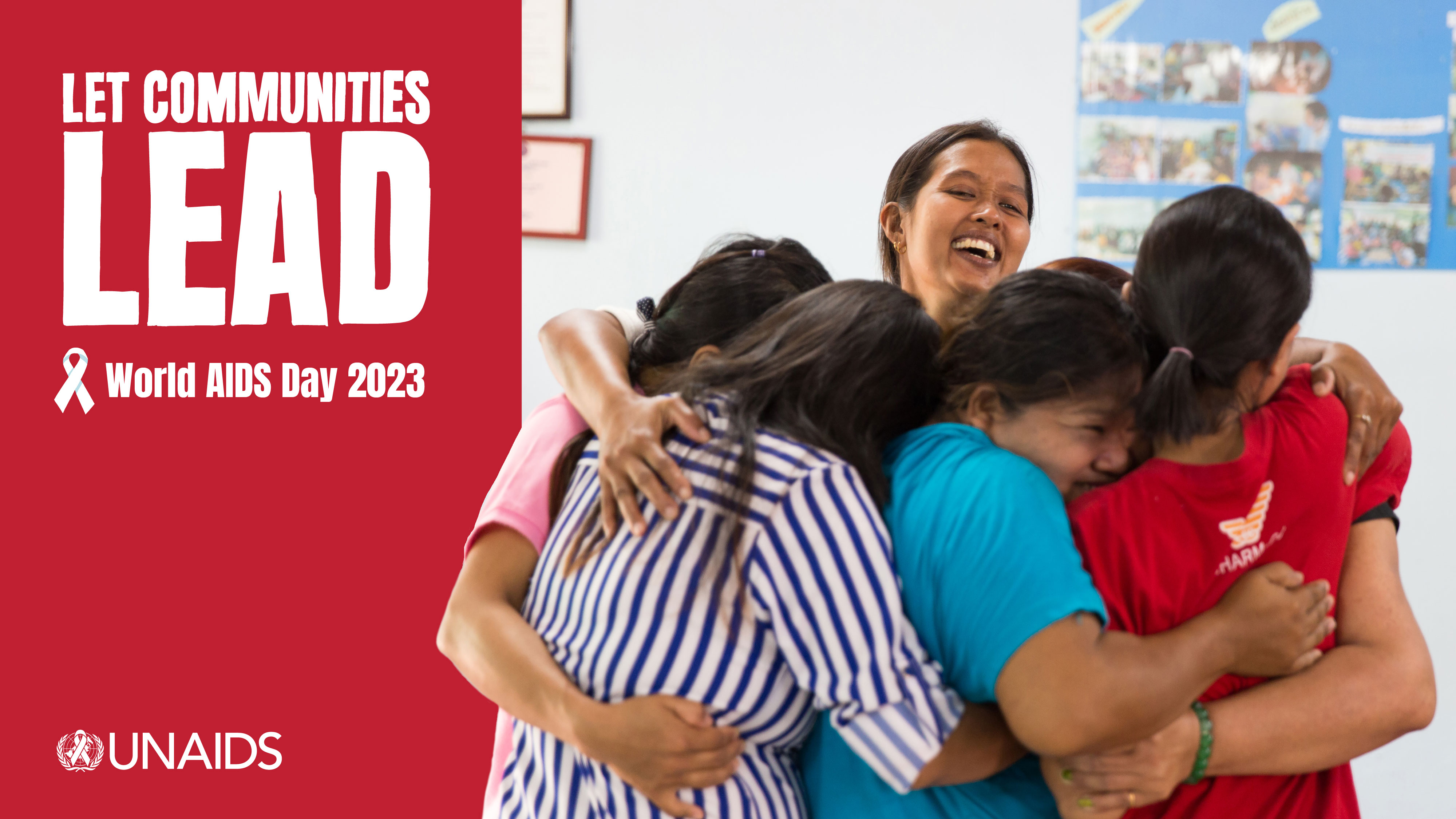World AIDS Day, 1 December 2023
November 28, 2023

In 1983, pioneering AIDS activists agreed the Denver Principles manifesto, which rejected the notion that people living with HIV were victims and made it clear that they had a central role to play in all aspects of the AIDS response. This was an historic first step towards the Greater Involvement of People with HIV (GIPA) principle, which promotes the meaningful participation of people living with HIV. That principle, where communities lead, has guided significant strides forward. That is reflected in the fact that the number of people on antiretroviral treatment worldwide rose almost fourfold, from 7.7 million in 2010 to 29.8 million in 2022. Yet every minute in 2022, AIDS claimed a life and 9.2 people living with HIV did not have access to treatment. Unfortunately, rates of new infections and deaths are not falling rapidly enough to meet the Sustainable Development Goal target to end AIDS as an epidemic by the end of this decade.
Countries that are putting communities first like Botswana and Zimbabwe have achieved significant progress. They have recently exceeded the 95-95-95 testing and treatment targets ahead of the 2025 deadline. It means that 95% of the people who are living with HIV know their HIV status, 95% of the people who know that they are living with HIV are on lifesaving antiretroviral treatment, and 95% of people who are on treatment are virally suppressed. Working alongside key partners such as UNAIDS, the U.S. President's Emergency Plan for AIDS Relief (PEPFAR) and the Global Fund to Fight AIDS, Tuberculosis and Malaria, the United Nations Development Programme (UNDP) is helping to ensure that communities can lead and directly inform the support and resources that they need. For instance, in Burundi, UNDP and the Global Fund are supporting community LGBTQI+ organizations that are providing legal aid and psychosocial support. In Sudan, the partnership’s recent support will help to maintain HIV treatment for 11,000 people during the conflict. And in the Dominican Republic and the Philippines, UNDP is ensuring that communities can have their say in national HIV plans and programmes.
Decades of evidence point squarely to the fact that laws, policies and practices that criminalize people living with HIV and other key populations increase stigma, block access to services, impede effective HIV responses and cost lives. Brand-new analysis by the O’Neill Institute, UNDP and the Global Network of People Living with HIV (GNP+) illustrates the major progress made on decriminalization, which has advanced the global HIV response, often driven by the courageous advocacy of communities. Countries such as the Cook Islands and Mauritius have joined a growing number of jurisdictions to decriminalize same-sex relations. Yet there is a worrying trend of the introduction of anti-LGBTQI+ laws, prosecution, and persecution in some countries. As part of efforts to break down barriers, UNDP is leading the SCALE initiative to support countries and communities to drive progress on the historic 10-10-10 targets, in particular the commitment to support the leadership of people living with HIV and other key populations to remove punitive and discriminatory laws, policies and practices that are undermining HIV responses. And a new UNDP guide offers a range of practical tools to help ensure the greater participation of LGBTI+ persons in political and electoral processes. In 2022, there was an estimated 90% funding gap for HIV prevention programmes among people from key populations
As funding for HIV falls back to 2013 levels and the estimated 90% funding gap for HIV prevention programmes for key populations in 2022, There is a pressing need to not only increase funding but also finance what works: including evidence- and rights-based combination prevention and treatment and the integration of HIV into Universal Health Coverage. As we mark the 75th Anniversary of the Universal Declaration of Human Rights in 2023, all countries have an obligation to actively nurture it, which includes advancing non-discriminatory laws, promoting gender equality and strengthening community responses. As part of the United Nations family, UNDP is committed to supporting communities -- especially people living with HIV and other key populations -- to lead. This is a mission-critical step on the path to ending AIDS as a public health threat by 2030.
Achim Steiner, Administrator, United Nations Development Programme (UNDP)
The theme of #WorldAIDSDay on 1 December 2023 is “Let Communities Lead”.

 Locations
Locations